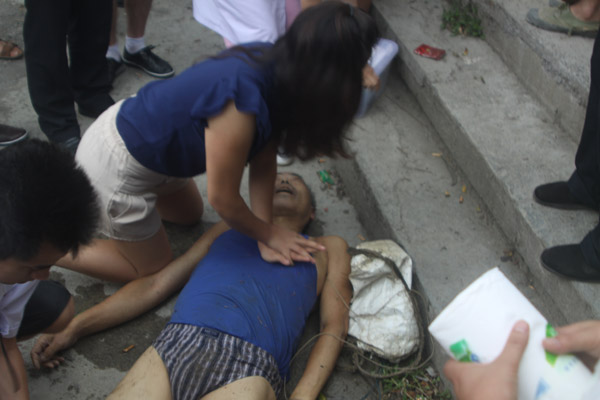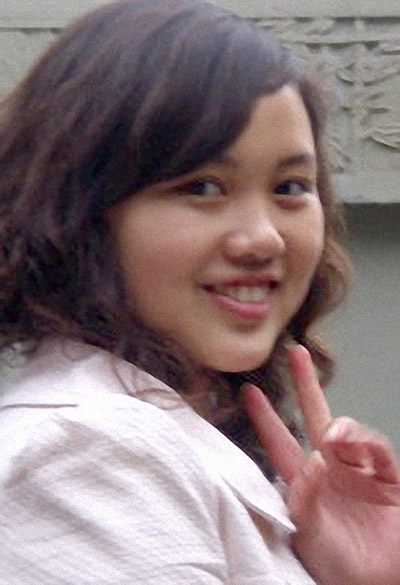Quiet girl's selfless actions in rescue
Updated: 2011-08-03 07:33
By Cang Wei and Lin Shujuan (China Daily)
|
|||||||||||
BEIJING - A 20-year-old girl has become an Internet star in China for giving her first kiss to a drowning old man.
 |
|
Yu Shuhua performs cardiac massage on an old man who was rescued from the river on July 27 in Chongqing municipality. [Photo/ China Daily] |
The girl, Yu Shuhua, was on her way from work on July 27 when she saw the man being rescued from a river.
Having just graduated this year from a nursing college in Beijing, Yu cleared the man's airway, knelt down and immediately gave him mouth-to-mouth resuscitation and performed cardiac massage.
Due to time constraints, the girl did the mouth-to-mouth resuscitation without a gauze, which is required by regulation.
A passer-by named Xiong Kelin took nine photos of the girl rescuing the old man, and uploaded them to the Internet. He said he tried to ask the girl's name after noticing that she was about to leave, but the girl refused to tell him and left quietly.
However, Chinese netizens managed to track down Yu, who works as a nurse in Youyang People's Hospital in Chongqing municipality.
"It's normal for people to help a dying person if they can," said Yu. "I didn't give my name because it's no big deal."
However, many Chinese people consider mouth-to-mouth resuscitation to be unsanitary, and can only be applied between people who are closely connected.
 |
|
Yu Shuhua is a nurse at Youyang People’s Hospital in Chongqing municipality. [Photo/ China Daily] |
"At the sight of the mouth-to-mouth resuscitation, I thought at first she was a relative of the drowning man," said Xiong.
"Though unprotected mouth-to-mouth resuscitation normally causes no serious infection, the risk still exists," said Xiao Yonghong, chief physician of the No 1 Hospital affiliated to Zhejiang University. He said that some respiratory diseases can be spread through artificial respiration, such as tuberculosis.
Xiao also said that most Chinese adults lack necessary first aid knowledge.
"Though first aid education is taught to primary and high school students in most Chinese cities now, Chinese adults still have no knowledge of it."
He also said that no health education organization in China has been assigned to disseminate first aid knowledge, nor is any government department in charge of promoting it.
Yu Tianyao, a lawyer from Shanghai, says the report reminds him of the importance of learning first aid. "Some day you might need it. It is always a good thing to save one's life," he said.
Many netizens saluted Yu.
"If you were her, would you do as she did?" asked a netizen named Peiyuan.
Li Linqi, a writer from Hainan province, says he believes anyone who has received professional medical training would do the same. "It is their obligation," he said. "We tend to exaggerate the bad morality of some medical staff, whose number is in fact very limited, and ignore the fact that most medical professionals are performing their duties at their best."
One netizen left the comment: "Now I believe there are indeed angels in this world."
Yu had given artificial respiration and cardiac massage for about three minutes before an ambulance came, coincidentally from the hospital she works in.
She kept calling the emergency room to check on the man's condition before learning he had died.
"I felt sad about his death, but I think people made their best effort to rescue him."
But Yu said she has done what she needs to do as a nurse and prefers to be left alone.
"The world is full of various disasters. So we need to cherish life more - ours or others, the rich or the poor," Yu said.